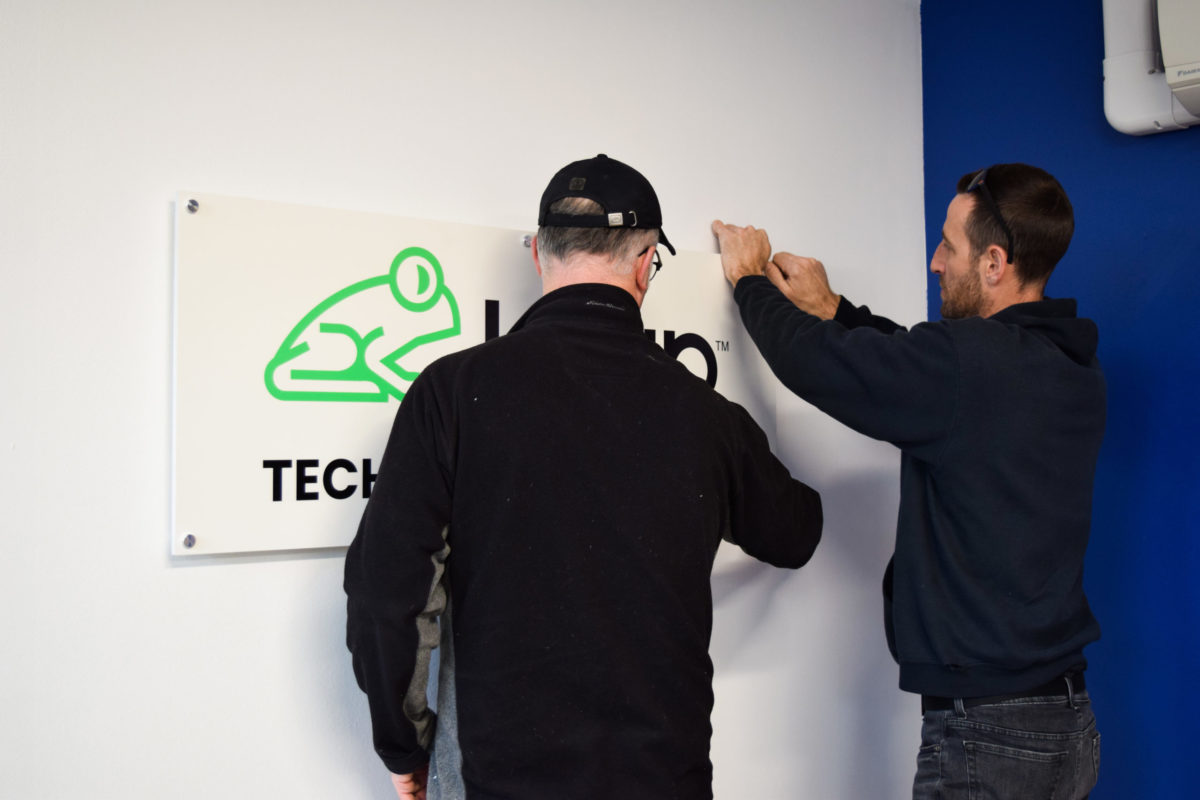The world went home over the last 18 months, and it also went digital.
Those are two trends that favored Leap, a Columbia-based tech company that’s bringing software to home improvement contractors. With folks spending more time at home, that meant more planned upgrades, or fixes on projects that might’ve gotten put off during normal times. Leap’s software helps them complete the sales process. With more jobs, it helps that Leap could step in with tools for estimating, financing and communicating to make things more efficient.
For home improvement contractors, using software is still a relatively new concept. Paper-and-pencil are in many cases still the tools of the trade, even as the power tools have gotten fancier. So, as CEO Patrick Fingles explained to Technical.ly in a recent interview, the company also sees plenty of opportunity to help contractors adapt. The company’s growth is limited by its own bandwidth, not the total addressable market it is seeking to woo.
These dynamics are some of the reasons why the five-year-old company is taking a big … well … leap. Over the last three years, it grew 756%, which landed it at #637 on this year’s Inc. 5000. It was one of more than 60 local companies on this year’s national list of fast-growing companies.
But ask Fingles about what has powered the company, and he quickly points to the team: It’s a group that has doubled over the last year, with a total of 68 employees now and an estimated 85 by the end of the year.
As for many businesses, COVID-19 meant a change in plans. A company that largely operated in-person, both internally at the office and externally at trades hows, was now operating digitally.

To keep pushing forward, Fingles said culture became particularly important. He said that starts at the top, and leaders have embraced both (over)communication and openness with employees.
“We want to be really honest with employees, and we don’t pretend that everything we’re doing is perfect,” he said.
And the key to a great culture doesn’t hinge on every employee agreeing with every decision.
“I think people often mistake alignment with agreement,” Fingles said. “You have to delineate those to have a successful culture.”
Agreement implies that each employee thinks the way a business is going about a certain strategy or task is exactly the right one. That’s unrealistic, especially as teams grow. But while employees might question the way a leader is going about a certain strategy or task, it’s important that they’re aligned around understanding why it’s being done this way, and doing it to the best of their ability. If there’s not alignment, an employee may not carry it forward with as much energy, or could actively speak out to other employees, ultimately undermining leadership. There’s a place for venting of course, but it becomes counterproductive when it keeps work from getting done.
As team members have returned to the office, it’s a reminder that it’s not about what’s in it as much as the interactions between people and how a team works together that make up a culture.
“We do have a Starbucks machine in the cafe — however, don’t get it twisted. That’s not who we are and who we stand for,” Fingles said. “We understand that’s not what’s going to keep people here. What’s going to keep people here is honesty, communication and alignment in the company mission.”







